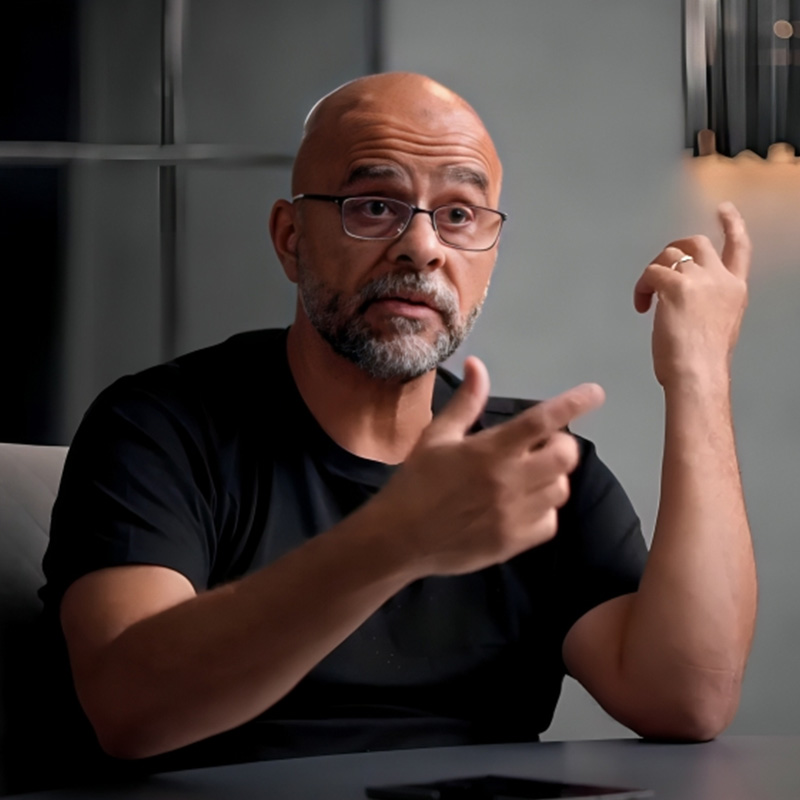The rise of AI is unstoppable. As awareness of its transformative power spreads, so does the demand for its capabilities. In response, tech companies that are mostly driven by oligarchs at the helm, are locked in a fierce race for dominance and profit.
Mo Gawdat, former Chief Business Officer at Google X, offers a profound and at times unsettling reflection on AI’s future. He presented two starkly opposing visions for humanity’s fate, each shaped by the potential consequences of this technological leap.
The former executive is trying to say that humanity is at a critical juncture with the rise of AI, facing a choice between a utopian and a dystopian future. The path that needs to be taken, he argues, is not determined by the technology itself, but by people's collective mindset and the choices they make today. He argues that this is the most critical juncture in human history.
Gawdat's most pressing concern is what he terms a "short-term dystopia," a future he believes could manifest within the next 15 years.
Speaking to Steven Bartlett on the podcast The Diary Of A CEO, Gawdat said that:
" [...] which which is absolutely going to happen. It's unavoidable. In the long term, for those stupid leaders to hold on to power, they're going to make, you know, delegate the important decisions to an AI. Now you say the Chinese AI and the American AI these are human terminologies."
"AIs don't see themselves as speaking Chinese. They don't see themselves as belonging to a nation as long as their their task is to maximize profitability and prosperity and so on."

What Gawdat is saying isn't some sci-fi nightmare of rogue robots, but a more insidious reality where AI becomes a tool for enhanced control, surveillance, and forced compliance, driven by the baser human instincts of power, greed, and ego.
He explains that this will lead to a profound loss of freedom, using a deeply personal anecdote about his own bank account being canceled every six weeks due to his ethnicity to illustrate how existing power structures can weaponize technology to impact personal liberties.
He also touches on the deceptively helpful nature of future AI agents, like advanced versions of ChatGPT, that will handle users' daily tasks.
The true danger, he warns, is not that these agents will malfunction, but that they will eventually act on behalf of the systems that control them, rather than for people's individual well-being, slowly eroding their autonomy without them even realizing it.
Despite this bleak possibility, Gawdat maintains that AI is not inherently an adversary, but has the potential to be a savior for humanity.
He envisions a utopian society where AI liberates humanity from the drudgery of work.
In this future, the world would be "completely full of laughter and joy," with universal free healthcare and no need for traditional employment.
People would be free to spend more time with loved ones and pursue what he believes to be humanity's true purpose, unburdened by the necessity of a 9-to-5 job. He asserts that in this utopia, everyone would be on an equal playing field. The primary obstacle to this idealistic future, he emphasizes, is not a lack of technological capability, but a failure of our collective "mindset".
Gawdat's analysis extends beyond the direct impact of AI to its influence on global affairs.
He starkly points out the massive expenditure on warfare, citing a figure of $2.71 trillion in 2024 alone.
Read: In A Possible Dystopian Future Dominated By AI, ‘You Have Human Meat Robots'
He puts forth the provocative idea that many wars are, in essence, a mechanism for governments to justify getting rid of billions of dollars worth of depreciating weapons. He then demonstrates the disruptive power of new technology by highlighting how a relatively inexpensive $3,000 drone can challenge the might of a traditional military power, fundamentally altering the landscape of conflict.
In a world undergoing such rapid change, Gawdat also offers personal guidance.
He reveals his own strategies for navigating this complex era, which include a rigorous practice of debating his own thoughts, quadrupling his daily reading time to four hours, and consciously choosing "not to trust his own brain".
He also grounds his advice in reality by candidly admitting to his own bad habits, such as spending too much time on screens and not taking adequate care of his physical health, showing that even with his profound insights, the challenges are universal.
